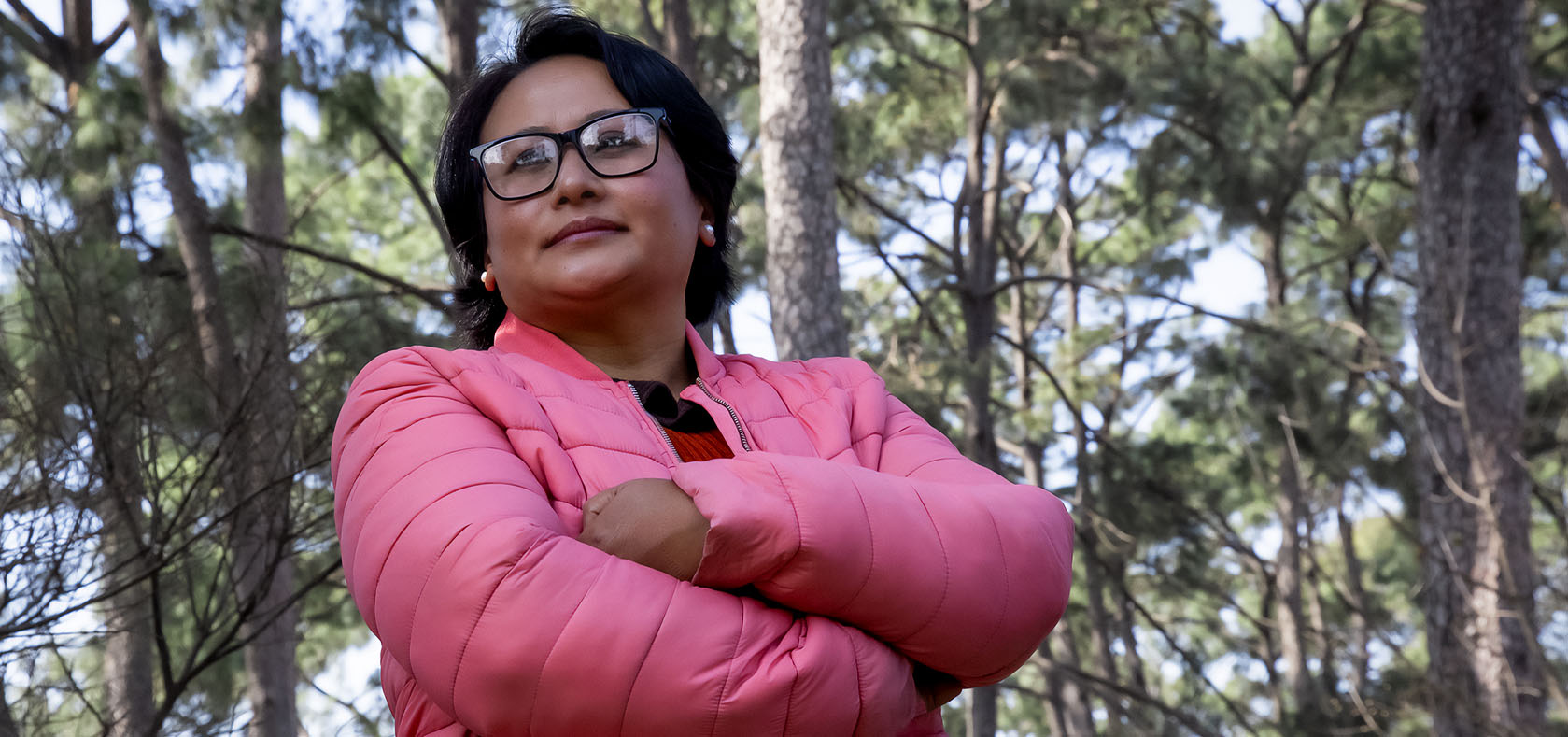From where I stand: “Put indigenous women and our communities at the centre of climate action”

Originally published on UN Women's regional website for Asia and the Pacific
Kamala Thapa, 39, an indigenous Magar woman, is Indigenous Peoples and Local Community Manager at the Centre for Indigenous Peoples’ Research and Development, a non-governmental organization in Kathmandu, Nepal.
If we are going to build a just, equitable and sustainable future, we must put indigenous women and our communities at the centre of climate action.
From the high mountains to the plains, indigenous communities across Nepal have been living sustainably for generations. Living in harmony with nature is linked to our indigenous cultural and spiritual values, as well as our collective decision-making. We have long used our traditional knowledge and customary institutions to maintain the biodiversity of Nepal’s forests, grasslands and marine environments.
Despite this, indigenous women are often not included in decision-making processes related to sustainable development and climate action. This has resulted in negative consequences with dire implications for indigenous women and indigenous knowledge.
For example, facing climate change, the government has steadily expanded ‘protected areas’, which now make up more than one-fourth of Nepal. Following the designation of a ‘protected area’, Indigenous communities are evicted from their ancestral lands. However, as indigenous livelihoods and cultural survival is dependent on natural resources, indigenous women continue to go back to their lands to collect wild vegetables, firewood, fodder and medicinal herbs. In doing so, indigenous women face threats, harassment and violence at the hands of security forces deployed in the protected areas.
This is an example of how climate change-related policies and laws that do not put indigenous women and our communities at the centre can do more harm than good. Ecosystems that make up our ancestral lands do not need to be ‘protected’ -- we have been conserving and maintaining them for generations.
Environmental conservation policies and laws would be stronger if they promoted indigenous knowledge and cultures as a way of combating climate change. Without this, they risk further marginalizing indigenous communities that consume the least resources and contribute the least to greenhouse gas emissions.
After decades of action by indigenous activists and natural resource experts, we are starting to see some improvements. Initial consultations with our communities on projects impacting our land is occurring. But our demand is that free, prior and informed consent from indigenous communities be fully sought before legislative or administrative measures are initiated, in line with UN Declaration on the Rights of Indigenous Peoples.
Indigenous peoples are the traditional custodians of the land, and our way of life is premised on protecting biodiversity for future generations. This is a key element of successful climate action. Indigenous women of Nepal are repositories of knowledge about their land and the environment, and it is only by recognizing, respecting and building on this knowledge that we can collectively ensure climate justice and sustainability for all.”
Kamala Thapa, 39, an indigenous Magar woman, is Indigenous Peoples and Local Community Manager at the Centre for Indigenous Peoples’ Research and Development, a non-governmental organization in Kathmandu, Nepal. Thapa’s work relates to Sustainable Development Goal 13, which calls to take urgent action to combat climate change and its impacts.